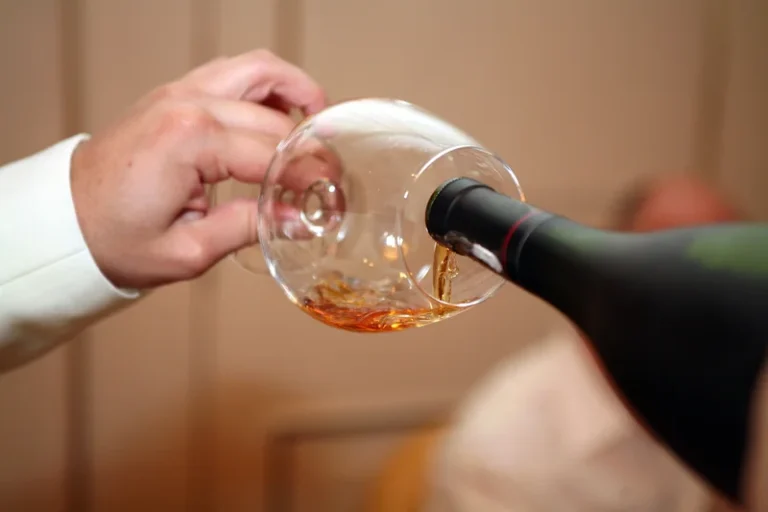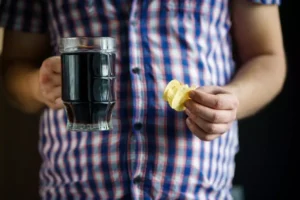Exploring Your Relationship With Alcohol

However, by setting clear boundaries, drinking responsibly, communicating openly, spending quality time together, and finding alternative activities, it is possible to minimize the negative effects of alcohol on relationships. The impact of alcohol on relationships is widespread and can affect every single relationship a person is a part of. From intimacy problems and lack of emotional availability to the financial burden and negative effects on children, alcohol use disorder can affect partners, their children and other family members.

Understanding Risks
If the results indicate any issues, it might be time to ask yourself about the role alcohol plays in your life. Often, this journey begins with a better understanding of alcohol use disorder. If your answer is “I’m not sure,” it might be time to take a step back and reflect on whether or not you’re happy with your relationship with alcohol. Those who prioritize the needs of their partner above their own often suffer from mental health issues like depression and low-self esteem. When you feel affected by codependency, it’s helpful to take a break or distance yourself from the relationship. Even if you believe your partner is more important than any substance, your actions will likely prove otherwise if you have alcohol use disorder.

Can alcohol change a person?
Alcohol codependency occurs when a person becomes reliant on someone and their alcohol misuse hinges on their partner’s behaviors. A partner of someone addicted to alcohol may believe they’re helping the other person by enabling the addiction to continue. In reality, they’re doing it for themselves while encouraging an unhealthy dynamic. Alcohol use disorder (AUD) is a common addiction, affecting nearly 15 million adults in the United States. While alcohol dependence can be devastating to one’s health, it can also impact a person’s relationships, including the most meaningful people in their life. Alcohol use can exacerbate mental health conditions, like anxiety and depression, or lead to their onset.
- Once you start to feel comfortable in social situations without a drink in your hand, the next step is to prepare yourself for people’s reactions.
- Participants were provided a list of local referrals for psychological services after completing all measures and were given credit as partial fulfillment of a social science course in return for their participation.
- Alcohol can cause intimacy issues that lead to breakups, estranged marriages or lost friendships.
- Alcohol codependency occurs when a person becomes reliant on someone and their alcohol misuse hinges on their partner’s behaviors.
- When alcohol has become a core part of our relationships, it can stand in the way of us taking action to change our own drinking habits, even when they aren’t making us happy.
- As stated above, keeping a distance is necessary to avoid enabling and ensure you don’t become emotionally dependent on helping them.
When is it time to seek help?
You also join moderated alcohol support groups and our anonymous community forum. Our highly qualified professionals are prepared to help you address your drinking and get you on the road to a happier and healthier life with strong personal relationships. Common signs include being unable to control your drinking or lacking the ability to stop or reduce your alcohol intake. An alcohol use disorder is also characterized by negative consequences, such as failed or troubled relationships with loved ones. Most people know that drinking too much can harm your mental and physical health. But alcohol abuse can also hurt the relationships you hold dearest to you—especially the connection between you and your romantic partner.
Alcohol impairs judgment and decision-making, which can lead to neglect or abuse of children. Children may feel neglected or abandoned by their parent’s addiction, leading to feelings of resentment and anger towards them. Recognizing the signs of problem drinking early on can help prevent further damage to relationships and overall health. In this article, we will explore how does alcohol affect relationships how alcohol affects relationships and offer some tips on how to minimize its negative effects. Being mindful of this relationship requires honesty and courage about how alcohol impacts your health, relationships, work, and other social obligations. It also requires kindness and compassion and a willingness to reach out for help if you uncover any underlying issues.
Inpatient or Outpatient Treatment
- Dealing with a partner’s alcohol addiction can be emotionally draining and stressful.
- Trust is essential for a healthy and functioning relationship and can be challenging to repair once damaged.
- Additionally, the use of a mostly Caucasian heterosexual college dating sample limits the generalizability of these findings to more diverse populations and other types of dyads.
- Parenting under the influence of alcohol can be challenging and even dangerous.
Alcohol is one of the leading causes of death in the United States, contributing to approximately 178,000 deaths annually. Over time, alcohol use takes a toll on your body and increases your risk of over 200 health conditions. Chronic alcohol use and binge drinking damage the heart muscle, making it harder for the heart to pump blood effectively. Alcohol can also contribute to arrhythmias (irregular heartbeats) and hypertension (high blood pressure), increasing the risk of heart attack, stroke, and heart failure. If you notice some of the warning signs mentioned above, it may be time to take a closer look at the role alcohol is playing in your relationship and seek support.

#4 Drinking is More Important Than Your Relationship
They can help determine whether what you’re experiencing is alcohol use disorder and recommend further evaluation or treatment if necessary. When paired with problems that can also arise from excessive alcohol use, drinking can sometimes negatively affect our relationships with the people closest to us. Support organizations exist for friends and family members of those with alcohol use disorders due to the problems created by the condition. Al-Anon Family Groups and similar organizations seek to help people in this situation understand their role in the environment. Groups typically focus on helping acquaintances and loved ones understand that they are not responsible for the behavior and actions of a sufferer of alcoholism. Such organizations may offer aid in the form of group therapy sessions, resources for development and community support for members seeking friends outside of their normal environment.
- Alcohol use disorder can lead to lost friendships, estranged marriages and family conflict.
- Unfortunately, sometimes those same people can feel judged by your changing relationship with alcohol, which is why it is important to begin by setting boundaries with the people in your life who still drink.
- If your drinking is causing you to pass out, blackout or get sick, this is going to put a damper on intimate activities.
- People who find themselves in a romantic relationship with someone struggling with alcoholism may end up making excuses for their lack of attendance or improper conduct at social functions.
Addiction Treatment Programs
Heavy alcohol users may have trouble relating to teetotalers or those who do not share their propensity for drinking to excess, and they may attempt to convince friends or loved ones to join them in drinking. This can lead to additional problems as others experience the challenges faced by having a sufferer in their personal relationships. Families and others that rely on a sufferer of alcoholism are likely to experience problems related to financial troubles caused by drinking habits. The costs of alcohol increase as the person builds tolerance to the drug in his or her system.
Your significant other fell in love with a certain person, but you might become someone else entirely when you drink alcohol. Maybe alcohol is a social lubricant for you, but its effects have been magnified https://ecosoberhouse.com/ in the recent past. Moreover, alcohol is often used as a coping mechanism for stress or emotional pain. This can lead to a cycle of dependency and addiction, which can further harm relationships.
